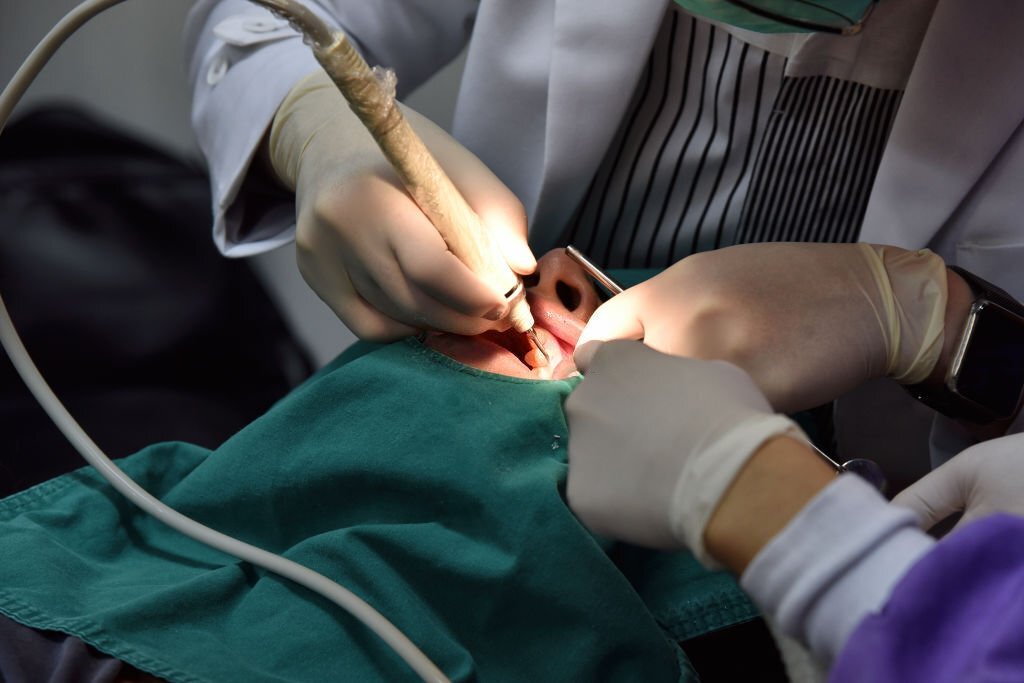Introduction
Oral surgery is a common procedure that can include tooth extractions, dental implants, and corrective jaw surgery, among others. While many people undergo oral surgery successfully and recover with minimal complications, individuals with diabetes face unique challenges in the healing process. Diabetes is a chronic metabolic disorder that affects how the body processes glucose, leading to high blood sugar levels. In this blog, we will explore the ways in which diabetes can impact your ability to heal after oral surgery and provide essential tips for managing this condition to ensure a smooth recovery.
Understanding the Link Between Diabetes and Healing
Before delving into the specific impacts of diabetes on oral surgery recovery, it’s essential to comprehend the link between the two. Elevated blood sugar levels can hinder the body’s natural healing processes, leading to potential complications after surgery. People with diabetes may experience reduced blood flow, nerve damage, and a compromised immune system, all of which can impede the healing of oral wounds.
Delayed Wound Healing
One of the primary concerns for individuals with diabetes undergoing oral surgery is the delay in wound healing. High blood sugar levels can impair the formation of new blood vessels, a process known as angiogenesis, which is vital for wound healing. Consequently, this delayed healing process can increase the risk of infection, discomfort, and prolonged recovery times.
Increased Risk of Infections
The compromised immune system in diabetes patients makes them more susceptible to infections. After oral surgery, there is an increased risk of infections such as dry socket, peri-implantitis (inflammation around dental implants), and abscesses. Infections can be painful and, if left untreated, may lead to more severe complications.
Gum Disease and Periodontal Complications
Diabetes can also exacerbate existing gum disease (periodontitis) or lead to new complications in the gums. Periodontal health is crucial for successful oral surgery outcomes, as infections in the gums can affect the stability of dental implants or lead to complications during tooth extractions.
Nerve Damage
Diabetic neuropathy, or nerve damage, is another common complication in diabetes patients. Nerves in the mouth and jaw area may be affected, leading to altered sensations, such as tingling or numbness. Nerve damage can make it challenging to identify post-surgery issues, like infection or trauma, as patients may not feel the pain or discomfort associated with these problems.
Poor Blood Circulation
Diabetes can lead to vascular complications and poor blood circulation. Proper blood flow is crucial for delivering essential nutrients and oxygen to the surgical site, promoting healing. Reduced blood circulation can hinder the body’s ability to flush out toxins and bacteria, further increasing the risk of infections.

Controlling Blood Sugar Levels Before and After Oral Surgery
To improve the chances of a successful recovery, it is essential for diabetes patients to work closely with their healthcare providers to control their blood sugar levels before and after oral surgery. Here are some helpful tips:
a. Pre-surgery Planning:
Schedule a consultation with both your dentist and primary care physician before the surgery date. Discuss your diabetes management plan and ensure your blood sugar levels are stable.
b. Medication Adjustments:
If necessary, your physician might adjust your diabetes medications or insulin dosages to better manage your blood sugar levels during the healing process.
c. Monitoring:
Regularly monitor your blood glucose levels, especially in the days leading up to the surgery and during the recovery period.
d. Healthy Diet:
Maintain a balanced diet rich in nutrients, fiber, and low in added sugars to help stabilize blood sugar levels.
e. Avoid Smoking:
Smoking can hinder healing and increase the risk of complications. It is crucial to refrain from smoking before and after oral surgery.
f. Dental Hygiene:
Prioritize good oral hygiene to minimize the risk of infections and complications. Brush and floss regularly, but do so gently around the surgical area.
Follow Post-Surgery Care Instructions
Following oral surgery, patients must adhere to their dentist’s post-surgery care instructions carefully. This may include:
a. Managing Pain:
Take pain medications as prescribed by your dentist to manage discomfort effectively.
b. Ice Packs:
Applying ice packs to the surgical site can help reduce swelling and alleviate pain.
c. Soft Diet:
Stick to a soft diet to avoid placing undue stress on the surgical area. Opt for foods like soups, smoothies, mashed potatoes, and yogurt.
d. Avoiding Irritants:
Steer clear of irritants such as alcohol-based mouthwashes and tobacco products, as they can slow down the healing process.
e. Regular Follow-ups:
Attend all scheduled follow-up appointments with your dentist to monitor the healing progress and address any concerns promptly.
Conclusion
Diabetes can present unique challenges for individuals undergoing oral surgery. It is crucial for patients to be proactive in managing their blood sugar levels before and after the procedure, as well as adhering to their dentist’s post-surgery care instructions. By doing so, patients can increase their chances of a successful recovery and minimize the risk of complications such as delayed wound healing, infections, gum disease, nerve damage, and poor blood circulation. Remember, communication with your healthcare providers and a focus on maintaining overall health will greatly contribute to a smooth healing process and improved oral health outcomes.


